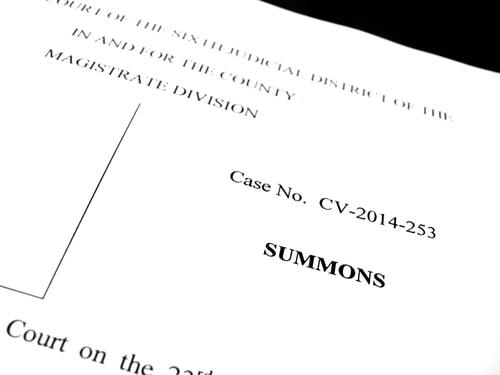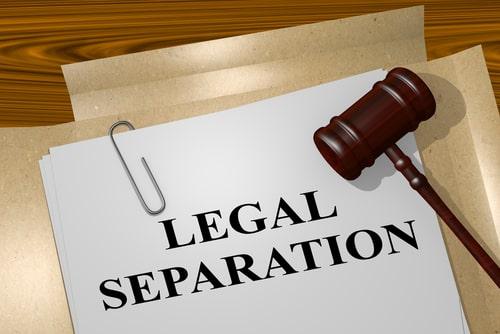Recent Blog Posts
When Is it Necessary to Establish Paternity in Illinois?
 If you are a parent who is involved in a family law matter in Illinois, you may need to address issues related to legal parentage. While this will not be a factor in every divorce or child custody case, there are certain situations where paternity may need to be established in order to protect a father's rights or ensure that children can receive financial support or other benefits. By understanding the laws related to paternity in Illinois, parents can make sure they take the correct steps to provide for their children's best interests.
If you are a parent who is involved in a family law matter in Illinois, you may need to address issues related to legal parentage. While this will not be a factor in every divorce or child custody case, there are certain situations where paternity may need to be established in order to protect a father's rights or ensure that children can receive financial support or other benefits. By understanding the laws related to paternity in Illinois, parents can make sure they take the correct steps to provide for their children's best interests.
What Is Paternity?
Paternity is the legal recognition of a child's biological father. When paternity is established, the father will be named as the legal parent of the child, giving him the right to request to share custody of the child and the obligation to provide financial support to ensure the child's ongoing needs are met. In Illinois, paternity is referred to as "parentage," and these cases may affect the relationships between a child and both parents, including mothers, fathers, and LGBTQ parents.
How Can Financial Infidelity Affect My Divorce?
 Money is often cited as one of the main reasons couples encounter relationship problems. When one spouse feels like they are shouldering more of the financial burden than the other, or when spouses disagree about spending, this can lead to serious conflict. Unfortunately, money is also often at the root of infidelity in marriage. Whether it involves hidden bank accounts, undisclosed debt, or secret spending habits, financial infidelity can have a devastating impact on a relationship. When these issues come to light during a divorce, it is important to understand how they may affect issues such as property division. By understanding how to address concerns related to hidden assets, asset dissipation, or other forms of financial deception, you can make sure your rights and financial interests will be protected during your divorce.
Money is often cited as one of the main reasons couples encounter relationship problems. When one spouse feels like they are shouldering more of the financial burden than the other, or when spouses disagree about spending, this can lead to serious conflict. Unfortunately, money is also often at the root of infidelity in marriage. Whether it involves hidden bank accounts, undisclosed debt, or secret spending habits, financial infidelity can have a devastating impact on a relationship. When these issues come to light during a divorce, it is important to understand how they may affect issues such as property division. By understanding how to address concerns related to hidden assets, asset dissipation, or other forms of financial deception, you can make sure your rights and financial interests will be protected during your divorce.
Addressing Financial Infidelity When Dividing Marital Property
Financial infidelity can take many different forms, but all of them involve some level of deception or secrecy when it comes to money. In some cases, a person may have been hiding a bank account from their spouse for years, or they may have racked up a large amount of credit card debt without the other spouse's knowledge.
How Long Will Spousal Support Be Paid Following an Illinois Divorce?
 There are a variety of financial factors that may play a role in a divorce, and in some cases, one spouse may be at a financial disadvantage because they earn less money or depend on the other spouse to provide for their needs. In these situations, a spouse may request support from their former partner that will allow them to meet their needs in the years following the end of their marriage. Spousal support—sometimes called "alimony"—is a payment from one ex-spouse to the other. In Illinois, spousal support may be ordered as part of a divorce judgment, or a couple may agree that spousal support will be paid when they negotiate the terms of their divorce settlement.
There are a variety of financial factors that may play a role in a divorce, and in some cases, one spouse may be at a financial disadvantage because they earn less money or depend on the other spouse to provide for their needs. In these situations, a spouse may request support from their former partner that will allow them to meet their needs in the years following the end of their marriage. Spousal support—sometimes called "alimony"—is a payment from one ex-spouse to the other. In Illinois, spousal support may be ordered as part of a divorce judgment, or a couple may agree that spousal support will be paid when they negotiate the terms of their divorce settlement.
In divorce cases where spousal support may be a factor, spouses are likely to have many questions. In addition to determining whether a spouse is eligible to receive support and the amount of support that will be paid, the parties will need to understand how long these payments will last. This can ensure that they will both be able to plan for how to address their needs in the future.
Can I Contest a Divorce Petition Filed by My Spouse?
 If you have been served with a divorce petition filed by your spouse, you may be wondering if you can contest the divorce. The answer is yes, it is technically possible to contest your spouse's divorce petition. However, doing so may not be in your best interests. Regardless of how you choose to approach the divorce process, it is important to make sure you have legal representation from a qualified and experienced attorney.
If you have been served with a divorce petition filed by your spouse, you may be wondering if you can contest the divorce. The answer is yes, it is technically possible to contest your spouse's divorce petition. However, doing so may not be in your best interests. Regardless of how you choose to approach the divorce process, it is important to make sure you have legal representation from a qualified and experienced attorney.
The Process of Filing and Responding to a Divorce Petition in Illinois
In Illinois, either spouse may file a petition for dissolution of marriage. Once the petition is filed, it must be served to the other spouse. The spouse who was served with the petition then has 30 days to respond. This response may include objections to the divorce petition, although most of the time, a spouse will accept the petition, answer any claims made by their spouse, and allow the divorce process to proceed.
What You Need to Know About Temporary Orders in an Illinois Divorce
 When a married couple decides to divorce, there are a lot of decisions that need to be made. How will their assets be divided? Where will the children live? Who will pay child support? These are all important questions that must be addressed during the divorce process. While a couple's divorce decree will set down the final decisions made in these areas, some issues may need to be addressed while the case is ongoing. Temporary orders can address these issues.
When a married couple decides to divorce, there are a lot of decisions that need to be made. How will their assets be divided? Where will the children live? Who will pay child support? These are all important questions that must be addressed during the divorce process. While a couple's divorce decree will set down the final decisions made in these areas, some issues may need to be addressed while the case is ongoing. Temporary orders can address these issues.
What Are Temporary Orders?
Temporary orders (sometimes referred to as temporary relief) are court orders that are issued on a temporary basis during a divorce case. In Illinois, a person will request temporary relief when filing a divorce petition, and the other spouse may also make requests when they file a response. The judge will address these requests and issue temporary orders at the beginning of the case.
At any time during the divorce process, either spouse may file a petition requesting temporary relief, and a hearing will be held to determine how certain issues will be handled. Once a temporary order is issued, it will remain in effect until the completion of the divorce, unless another temporary order is issued at a later date that modifies or reverses the initial order. Once the divorce is finalized, the terms of the divorce decree will supersede any temporary orders that had been put in place.
How Is Joint Child Custody Handled in Illinois Family Law Cases?
 Addressing matters related to child custody is often one of the most difficult aspects of getting a divorce. Unmarried parents may also need to address this issue, and both parents may be looking to determine how they can share custody of their children. In Illinois, joint child custody is generally presumed to be in the child's best interests unless there is evidence showing that it would not be. However, understanding exactly what joint custody entails is not always easy, and parents will need to be aware of how legal and physical custody are addressed in Illinois law.
Addressing matters related to child custody is often one of the most difficult aspects of getting a divorce. Unmarried parents may also need to address this issue, and both parents may be looking to determine how they can share custody of their children. In Illinois, joint child custody is generally presumed to be in the child's best interests unless there is evidence showing that it would not be. However, understanding exactly what joint custody entails is not always easy, and parents will need to be aware of how legal and physical custody are addressed in Illinois law.
Understanding Joint Child Custody
When matters involving child custody are addressed in family courts, the decisions made will usually be separated into two distinct categories, commonly referred to as legal and physical custody. Legal custody, which Illinois law refers to as the "allocation of parental responsibilities," refers to decision-making power for things like education and medical care. Physical custody is known as "parenting time" in Illinois, and it includes any time that children spend in the care of a parent. Physical custody will address where children will primarily live and when they will stay in each parent's home.
UPDATE: Can I Prevent My Ex from Hiring a Babysitter During Parenting Time?
 Originally published: April 30, 2020 -- Updated: September 14, 2022
Originally published: April 30, 2020 -- Updated: September 14, 2022
Update: The right of first refusal, as discussed below, may address situations where one parent is unavailable to care for children during their scheduled parenting time. However, if these situations occur frequently, and a parent is regularly unavailable to address children's needs when required, the other parent may believe that it will be necessary to modify their child custody agreement and ensure that children will be able to have the care they need from a parent going forward. By understanding the requirements for post-divorce modifications, a parent can make sure these situations will be addressed correctly.
Modifications to the allocation of parental responsibilities or parenting time will usually only be allowed if there has been a significant change in circumstances since the original child custody agreement was put into place. There are multiple factors in the lives of parents or children that may be changes that are considered significant enough to warrant a child custody modification. For example, if a parent has found a new job with different hours, and they now require a babysitter or family member to pick children up from school and care for them during the evenings, the other parent may ask for their parenting plan to be modified so they can care for the children during these times.
How Are Legal Separations Handled in Illinois?
 No marriage is perfect, and married couples may encounter relationship issues for a variety of reasons. Some common factors that can lead a couple to grow apart include disagreements about finances or how to raise children, changing priorities that cause a couple to be incompatible, or extramarital affairs. For those who believe that they can no longer make their marriage work, divorce may be the best option. However, many couples are not ready for this permanent, final step, and they may first wish to separate on a trial basis. In other cases, a couple may prefer to stay legally married, even if they no longer wish to have a close relationship or live in the same home. This will allow them to maintain certain benefits and avoid the stigma of a divorce. In these situations, legal separation may be the ideal option.
No marriage is perfect, and married couples may encounter relationship issues for a variety of reasons. Some common factors that can lead a couple to grow apart include disagreements about finances or how to raise children, changing priorities that cause a couple to be incompatible, or extramarital affairs. For those who believe that they can no longer make their marriage work, divorce may be the best option. However, many couples are not ready for this permanent, final step, and they may first wish to separate on a trial basis. In other cases, a couple may prefer to stay legally married, even if they no longer wish to have a close relationship or live in the same home. This will allow them to maintain certain benefits and avoid the stigma of a divorce. In these situations, legal separation may be the ideal option.
The Process of Legal Separation in Illinois
For married couples who live in Illinois, a legal separation is handled in a very similar manner as a divorce. The process begins when one spouse files a petition for legal separation with the court in their county of residence. Once the paperwork is filed, the other spouse will be served with the petition and given 30 days to file a response. If both spouses agree on the terms of their legal separation, they can sign a separation agreement that will be submitted to the court.
How Are Disputes About Post-Divorce Relocation Handled in Illinois?
 When parents get divorced, they may put child custody arrangements in place to ensure they can be closely involved in raising their children. Maintaining strong parent/child relationships in the years following a divorce can be crucial for a child's well-being. However, these relationships may be affected by a parent's decision to relocate to a new home. If a parent plans to move with their children to a different city or state, and this relocation would impact child custody or parenting time, the parent will usually need to request a post-divorce modification. By understanding the specific laws in Illinois that govern parental relocation, parents can determine their options for resolving disputes in these situations.
When parents get divorced, they may put child custody arrangements in place to ensure they can be closely involved in raising their children. Maintaining strong parent/child relationships in the years following a divorce can be crucial for a child's well-being. However, these relationships may be affected by a parent's decision to relocate to a new home. If a parent plans to move with their children to a different city or state, and this relocation would impact child custody or parenting time, the parent will usually need to request a post-divorce modification. By understanding the specific laws in Illinois that govern parental relocation, parents can determine their options for resolving disputes in these situations.
When Are Parental Relocation Requests Necessary?
A move to a new home by a parent will only be considered a “relocation” in certain circumstances. A relocation request may be made by a parent who has been allocated the majority of the parenting time with the couple’s children, meaning that children live primarily in their home. These requests may also be appropriate in cases where children spend an equal amount of time with both parents. Parents will need to request approval for a relocation in the following circumstances:
How Can I Make Sure My Prenuptial Agreement Will Be Enforceable?
 A prenuptial agreement, or prenup, can be an important legal document that protects married spouses. As a contract between two parties who are planning to get married, a prenup will detail how different issues will be handled if the couple chooses to get a divorce in the future. Typically, a prenuptial agreement will be limited to addressing financial issues, such as property division or spousal maintenance. A prenup can provide both parties with the assurance that certain issues will be handled correctly if their marriage ever ends, and it can remove the possibility of conflict by resolving some disputes ahead of time. However, to avoid disputes related to the terms of an agreement, it is important to make sure a prenup will be valid and enforceable.
A prenuptial agreement, or prenup, can be an important legal document that protects married spouses. As a contract between two parties who are planning to get married, a prenup will detail how different issues will be handled if the couple chooses to get a divorce in the future. Typically, a prenuptial agreement will be limited to addressing financial issues, such as property division or spousal maintenance. A prenup can provide both parties with the assurance that certain issues will be handled correctly if their marriage ever ends, and it can remove the possibility of conflict by resolving some disputes ahead of time. However, to avoid disputes related to the terms of an agreement, it is important to make sure a prenup will be valid and enforceable.
Addressing Concerns About Prenup Enforceability
A prenuptial agreement is a legal contract, and both parties will need to be sure they fully understand all of the terms of the agreement and have the mental capacity to make sound decisions about financial matters. Once a prenup has been signed, and a couple has been legally married, its terms will usually be enforced in the event of a divorce. However, there are a few rare situations where a prenup may be determined to be unenforceable.


 630-909-9114
630-909-9114




